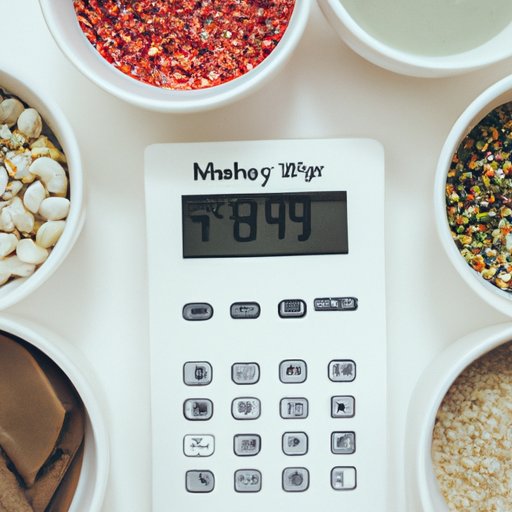
I. Introduction
For many people, the idea of eating fewer meals per day is often linked to weight loss. The common belief is that reducing the number of meals consumed leads to less calorie intake and therefore results in weight loss. However, recent research suggests that meal frequency may play a significant role in weight loss. In this article, we will explore the relationship between meal frequency and weight loss, the science behind it, and offer tips and strategies for incorporating more meals into your day.
II. The Science Behind Meal Frequency and Weight Loss
Understanding the role of metabolism in weight loss and weight gain is crucial. It is a process through which our bodies convert food into energy used to fuel our bodily functions. Studies suggest that higher meal frequency may lead to weight loss by increasing metabolism, ultimately burning more calories. However, it is important to distinguish between fact and myth regarding meal frequency and weight loss.
III. Are You Eating Enough? How Increasing Your Meals Can Help You Shed Pounds
Eating frequent meals throughout the day can lead to better energy balancing and prevent overeating. Rather than depriving yourself of meals, aim to make smarter food choices and incorporate more frequent, smaller meals into your diet. We provide various tips and strategies on how to increase your meals throughout the day.
IV. Intermittent Fasting vs. Frequent Meals – Which is Better for Weight Loss?
Intermittent fasting and frequent meal plans have increasingly become popular approaches to weight loss. While both approaches can lead to weight loss, they have their pros and cons. We provide guidance on how to determine the best approach for individual needs and lifestyles.
V. “Small and Often” – The Meal Plan That Can Help You Reach Your Weight Loss Goals
Small and often meal planning involves spreading food consumption throughout the day, with the aim of optimizing weight loss potential. This approach can help prevent cravings and overeating while, throughout the day, improving energy balance. We offer various examples and tips for implementing a “small and often” meal plan.
VI. How Eating More Frequently Can Boost Your Metabolism and Burn More Calories
Eating more frequently can help increase metabolism and calorie-burning throughout the day. Our body’s metabolism is what determines how many calories we use to fuel our bodily functions. Eating smaller, frequent meals throughout the day can help keep our metabolism working efficiently to burn calories and ultimately promote weight loss. We offer examples and tips on how to maximize metabolism through meal frequency.
VII. Meal Planning 101: How to Structure Your Day to Maximize Weight Loss
The timing and structure of your meals matter when it comes to weight loss. The goal is to spread your meals throughout the day, providing you with the maximum amount of energy while burning calories efficiently. We offer simple guidelines for structuring meals throughout the day for optimal weight loss results and tips and strategies for planning meals in advance and staying on track.
VIII. The Role of Protein and Fiber in Meal Frequency for Losing Weight
Protein and fiber-rich foods are essential for weight loss and meal frequency. They help you feel fuller for longer periods, reducing cravings for unhealthy snacks. Incorporating these nutrients into your diet can be key to achieving your weight loss goals. We provide examples of protein- and fiber-rich meals and snacks and offer tips on how to incorporate them into your diet.
IX. Conclusion
In conclusion, meal frequency plays a critical role in weight loss, and it is essential to explore different lifestyle choices to determine the right approach that works best for you. We hope that the information provided in this article will help you plan and structure your meals in a way that promotes healthy weight loss.
Remember, the key to weight loss is to be patient and consistent with your dietary choices. Check out additional resources for further learning and support as you embark on your weight loss journey.




